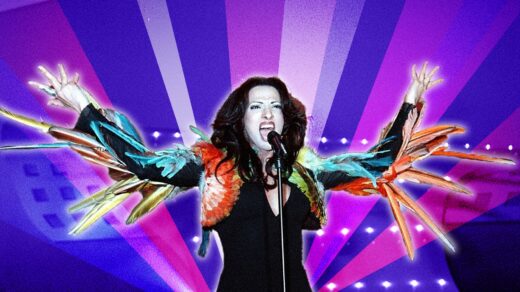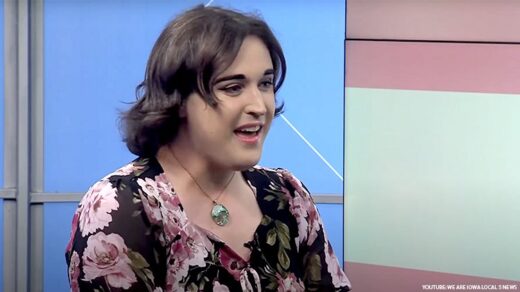The Black Gay Holiday Movie That Never Got Its Due
With all the notoriety about the Hallmark Channel airing its first LGBTQ+ holiday movie this year, I was nostalgic about other queer-themed holiday movies that might have been “firsts.”
Earlier this month, I wrote about the 20th anniversary of the premiere of Queer as Folk on Showtime, so I was delighted to see that also 20 years ago this December the network aired what is now considered a LGBTQ+ holiday movie must-see.
Holiday Heart, stars Ving Rhames as the gay drag queen Holiday Heart, who after a break-up with his boyfriend takes in drug-addicted Wanda (Alfre Woodward) and her daughter Nicki (Jesika Reynolds) during the holidays. Showtime was pushing boundaries during this period at the new millennium, with the goal of capturing the LGBTQ+ audience. Holiday Heart, according to my unscientific research, was the first holiday film featuring a drag queen, and one of the first films ever whose lead character was an effeminate, gay Black man.
One of the film’s producers was Robert DeNiro, who as an actor had his own run in with a drag queen (played by the late Philip Seymour Hoffman) the year before, in the movie Flawless. DeNiro’s production company developed Holiday Heart for Showtime, based on a play by Cheryl L. West and directed by Robert Townsend, who is also an actor, comedian, and writer.
I had the opportunity to speak with both West and Townsend about the uniqueness of their LGBTQ+ holiday classic, its relevance today, and the impact of the character of Holiday Heart.
I remember the first time I saw this film, and my reaction to the casting of Rhames as the lead character. It was astounding to see a muscular, large, straight African-American actor, who seemed typecast as an action hero, playing a gay drag queen. Rhames casting didn’t fit into that neat little box that I had ignorantly put drag queens in at that time as white and willowy. I wondered if the casting of Rhames was intentional.
“The writer is usually the last asked when it comes to casting, particularly in film. At the time, we would never have gotten a green light without a recognized ‘star’ in the role,” recalled West. “Even with DeNiro’s company producing the film, we still ran into studios who were only interested if Nicki was white or if I would make the character Holiday white. Either choice held no interest for me. Though its themes are universal, the lens is distinctly Black. Holiday Heart is a story about Black family, Black love, and Black joy.”
And that’s why Townsend felt Rhames shined. “I really thought Ving brought Holiday alive. I am really big on casting. That’s half the job of a director, and when the idea of Ving came up to play Holiday, I wasn’t sure at first if it was the right fit, but once we started rehearsals and shooting the project, I watched Ving commit and transform into the soul of Holiday and he found the unique rhythm that Cheryl had written.”
Indeed, watching it in 2020, you can see the results of Rhames’s efforts, but I wondered if the movie were made today, would they cast differently, given the broader societal acceptance of gay Black men and drag queens? “Yes, there has been a change in attitudes,” West said. “Today, I would definitely want to see an LGBTQ actor have the opportunity to play Holiday and explore whatever nuances he/they might bring to the role.”
And Townsend seconded that thought. “The studio always has the final say in casting. They are trying to cast someone that people will want to watch, bring eyeballs to the film or get overnight ratings. But now we’re in a different time in history, studio executives are willing to take more chances on newcomers like the award-winning cast of the FX hit series Pose. So, today I definitely would look to cast from within the LGBTQ community.”
Developing, producing, and ultimately airing a movie like Holiday Heart 20 years ago was a risk. I asked Townsend and West what kind of reaction they received when the film first debuted? “A lot of it was mixed. Some of the reviews were very positive but many were extremely negative,” Townsend evoked. “No one had ever seen a story about a gay Black man like this and that film was truly groundbreaking 20 years ago. When it was first screened, the film tested through the roof, receiving some of the highest scores in Showtime’s history.”
“For me the reaction was also mixed. Some loved it. Some didn’t,” West remembered. “Some thought Holiday was an emasculated Black man and thus someone folks would laugh at, especially the dominant culture. My job is never to write for what is expected or tolerable to the masses. My job, always, is to create rich, complicated characters that have something at stake and have a compelling story to tell. Holiday wanted love in his life and was blessed to encounter a child who needed the same.”
Holiday certainly was an atypical lead character for a film, so did his portrayal end up having a positive effect on how drag queens were perceived 20 years ago? “I hope so. I think with Holiday Heart people saw that being a drag queen could be a performative artform but that there was also a real person behind the makeup and costumes,” West pointed out. “And for young Black kids, I think Holiday was for many an introduction to acceptance – you could cross-dress, be gay and Black and still be afforded love and respect. Now, we know more about fluid sexuality and transgender identities. Hopefully, there’s more acceptance and less hysteria regarding the entire queerness spectrum.”
In that vein, does the film still have relevance 20 years later for audiences with less narrow minds and broader access to LGBTQ+ stories? “It really put a human face on the drag community,” added Townsend. “Cheryl wrote a complicated layered character that speaks to the heart of love. I do believe when people watch the film, they come away not judging the book by its cover.” And West pointed out that the film is always trending on Black Twitter and Facebook this time of year.
So why build the storyline of this film around the holidays? Was it intentional since the holidays often find people more loving and accepting? “No particular reason except I love Christmas and its nod to a family’s demonstration of love,” illuminated West. “It can be a wonderful time and also one of the loneliest if you don’t have family, birth or chosen. We did not think of it as a Christmas movie, but it has become one. I find that heartwarming,”
“I agree,” Townsend concurred. “I never really thought of this film as a holiday film. I’ve always thought about it as a slice of life about strangers whose lives intersect on this one night, and they become a family. The fact that the story ends during the holidays was just the way Cheryl crafted the symphony, but now that people consider Holiday Heart a holiday classic, I’ll take it!”
Holiday Heart is available on Amazon Prime.
John Casey is editor at large for The Advocate.
Original Article on The Advocate
Author: John Casey





